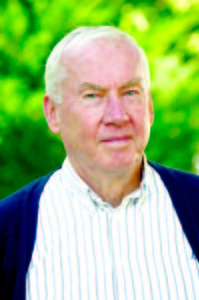Small World: Raise or freeze the minimum wage?
By Henry Precht
BN Columnist
Some time this year, there will be a congressional debate and vote on President Obama’s proposal to raise the national minimum wage from $7.25 per hour to $10.10 by 2016. As you might expect, Democrats favor, Republicans oppose. Chances are that Republican control of the House of Representatives will decide the outcome.
Meanwhile, in Maine the minimum wage remains at $7.50/hour despite votes by the State House and Senate to lift it to $9/hour by 2016 — thanks to Governor LePage’s opposition. (The governor earns $70,000/year, presumably for a 40 hour week = $33.65/hour, the lowest salary of any of the 50 governors.) The poverty level nationally is $14,570 per year; Maine’s minimum wage brings in $15,600 annually.
While we’re on the subject, we should note that Maine’s minimum doesn’t apply to students, farm workers, taxi drivers, fishermen or summer camp staff, among others. If a worker receives tips, his/her minimum pay drops to $3.75. As far as who in Maine earns the minimum wage, I guess that pretty much leaves dishwashers and hotel bed makers.
Back to the national debate: does an increase in minimum pay seem a good idea or not? According to the New York Times, if Obama prevailed, almost 28 million workers would get a raise. You can bet they won’t put the extra cash in a savings account; they would quickly spend it, meaning some merchants would benefit. Perhaps they would hire more help or add a room to the owner’s homestead. In other words, an increase at the bottom would boost the economy up the line.
Not so fast or so high, retort the Republicans. A higher minimum would force some competitive businesses to lay off workers or at least not expand. It would be a job killer. Not so, Democratic economists reply. Innkeepers and others would find the money to continue operations as before. Historically, the economy has managed — benefitted from — an increase in the poverty-level wage. The economist jury is out on this question.
In my view, the level we are willing to pay the least among us reflects the kind of society we value. The same principle is reflected in attitudes towards extending health care to those who can’t afford the traditional system. We’re not talking about charity; a living wage (like universal health care) is a measure of a society in balance with common, shared goals.
Let’s shift a moment to the other end of the spectrum, to the question of maximum wages. The press told us recently that the newly-selected woman president of General Motors may earn $14.4 million this year. (Toyota’s boss takes home $1.8 million, but he probably drives a Prius and doesn’t need as much cash.)
This larger question is also one that Obama has put on the national debate agenda: the widening gap between rich and poor and the narrowing opportunity for those below to move upward. Income inequality in the United States has been growing since the 1970s and is now at the highest level since pre-Great Depression 1928. The top 1% of our people takes home 30% of the nation’s income; the bottom 90% earns 50%.
Horatio Alger doesn’t live here any more. He has moved to Europe where getting to the top is easier in some countries than it is in ours. Researchers reported last year that the widest gap between rich and poor was found in Chile, Mexico, Turkey and, sadly, the United States.
This concentration of wealth in fewer and fewer bank accounts has consequences beyond the number of times a week one can eat out in high style. Great wealth means greater power. It perpetuates itself in subtle ways. The well-to-do go to better schools; they live in better neighborhoods; they marry each other. And, contrary to the way our system of government is supposed to function, they exercise disproportionate power over our government. Both Democrats and Republicans know who is more apt to support campaigns; they line up to pay court to those who can write the biggest checks.
Raising the minimum wage won’t shake this system, but it’s a start. Tax reform is the main battleground in the war to return this country to its founding principles.
Henry Precht is a retired Foreign Service Officer.


